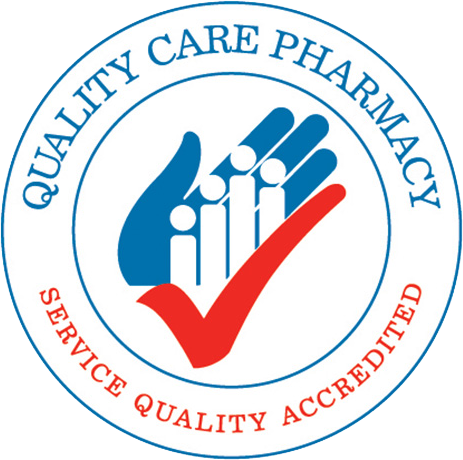Angina
Angina can occur when the heart is not getting enough oxygen. This is usually because the blood supply to the heart is blocked or because the heart is being overworked and therefore needs more oxygen than usual. The heart can usually function normally at rest but not when physically exerted.
What to look for
-
pain that is crushing, constricting, strangling, suffocating, sharp, or burning… It is normally felt in the chest but may also occur in other areas such as the jaw or abdomen. Location and specific sensations vary from person to person but are usually consistent from one attack to the next.
-
pain that occurs with exertion or excitement and recedes with rest.
-
pain usually only lasts for a few minutes
-
weakness, sweating, shortness of breath, anxiety, palpitations, nausea, or light-headedness… Symptoms that may or may not be associated with an angina attack.
-
patients who have had angina attacks may go on to have full blown heart attacks and vice versa
Of the many types of angina, stable, or classical, angina, triggered by exertion and receding with rest is the most common.
If you have stable angina, you should be able to predict what sort of activity will bring on an attack. Another type, unstable angina, is a more acute condition; it occurs unpredictably, even during rest, and should be interpreted as a warning sign of more serious heart trouble.
Alone, angina causes no permanent damage because the heart is only temporarily deprived of oxygen. But if your angina worsens, you should know that you are at a greater risk of heart attack. Be especially concerned if you develop unstable angina, and consult a doctor.
CAUSES
The main underlying cause of angina is coronary artery disease which describes the disease which the arteries become blocked by fatty deposits and blood is prevented from flowing through them. Angina can also result from other diseases that put exertion upon the heart unnecessarily, such as anaemia, aortic valve disease (see heart disease), heart arrhythmias, and hyperthyroidism (see thyroid problems).
Stable angina is sometimes called “exertional” angina because it is triggered by activities that make the heart beat rapidly such as physical activity, such as heavy lifting, sexual activity to eating a large meal.
Other triggers are emotional excitement cold weather, both of which stimulate the heart.
Certain risk factors for heart disease and coronary artery disease make the development of angina more likely.
-
These include high blood pressure,
-
stress,
-
high cholesterol
-
smoking,
-
obesity,
-
diabetes,
-
and a family history of heart disease.
Traditional Treatment
Drugs may alleviate angina symptoms, but fundamental changes in diet and lifestyle are an important part of any angina treatment program. Before taking any drug, review its properties and your medical history carefully with your Doctor and Pharmacist.
Many drugs should not be mixed with other drugs or natural medicines, and you also need to be sure your Doctor knows of any pre-existing medical conditions you may have.
If you have angina, your doctor will undoubtedly mention the importance of an overall healthy lifestyle that includes proper diet, exercise, weight management, and no smoking.
Most angina patients also take prescribed medication. There are three main classes of angina drugs…
-
Nitrates,
-
Beta-adrenergic blockers and
-
Calcium channel blockers.
Physicians often use a combination of these to treat angina.
If drug therapy does not work Angioplasty or bypass surgery may be considered. Angioplasty, a catheter technique that widens blocked arteries, has become a relatively routine procedure. Bypass surgery, which diverts blood flow around clogged arteries, is reserved for very severe cases.
Alternative/Natural Treatments
Always consult a doctor if you think you may have angina. The alternative therapies below may help relieve symptoms or prevent attacks, but they should be considered as complements to, rather than substitutes for, conventional medical care.
-
Herbal Therapies – Hawthorn is an excellent long-term tonic for angina because it simultaneously dilates coronary arteries and calms the heart. Raw garlic is said to help control blood cholesterol levels. Tea (made from lime flowers – linden, hawthorn and nettle) may reduce blood pressure and make the blood vessels stronger. Chamomile tea is also helpful.
-
Homoeopathy – For immediate relief during an acute attack, Cactus grandiflorus is recommended. Among the long-term remedies that might be prescribed to you are Nux vomica and Arsenicum album.
-
Lifestyle – Stay clear of carbon monoxide and cigarette smoke, avoid alcohol or drink only sparingly while on angina medication because of possible adverse reactions. Very gentle aerobic exercise may beneficial for angina patients. Build stamina gradually, and exercise inside during cold weather. Be sure to consult your doctor before embarking on an exercise program.
-
Mind/Body Medicine – If you are stressed or easily upset find ways to relax your mind and body. You may find relief through yoga, or meditation.
Dietary Considerations
Consider a low fat diet to decrease the fatty deposits around your arteries. Eat less saturated fats and cholesterol.
You may wish to take a program of vitamins such as the B complex, E and Pantothenic Acid.
Personal Care at Home
-
Use more pillows to raise your head up while you sleep to lessen the likelihood of a night attack
-
An aspirin a day, with your doctor’s permission, may reduce the risk of heart attack and unstable angina.
-
Spend at least an hour digesting heavy meals… exertion after eating is known to cause attacks.
-
Be careful when starting an exercise regime as this is known to create angina attacks.
-
Stop smoking, as it greatly aggravates angina.
-
Do not take birth-control pills if you have angina. Estrogens are associated with increased risk of blood clots.
When to seek further professional advice
-
if an attack lasts more than 10 minutes; this may be a heart attack. Call 000 or your emergency number now.
-
you think this may be your first angina attack; you need to find out for sure.
-
attacks have become more intense, frequent, prolonged, and unpredictable; these are signs of unstable angina.
-
you are taking your prescribed medication and notice side-affects










